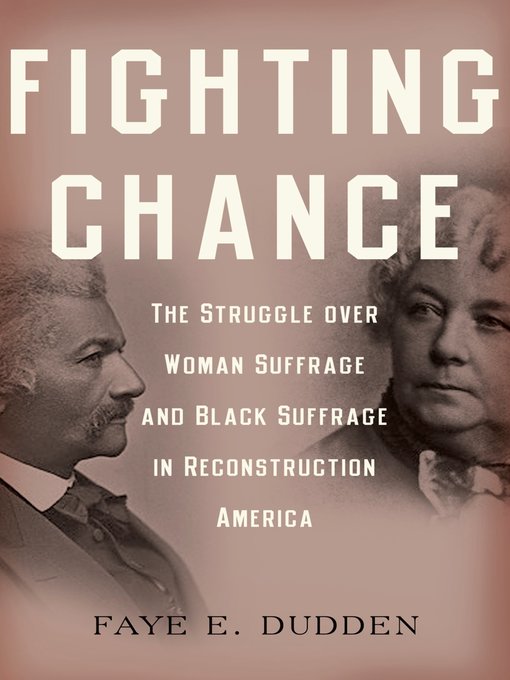
Fighting Chance
The Struggle over Woman Suffrage and Black Suffrage in Reconstruction America
کتاب های مرتبط
- اطلاعات
- نقد و بررسی
- دیدگاه کاربران
نقد و بررسی

May 2, 2011
In a nitty-gritty account of the struggle for suffrage in the years before, during, and especially after the Civil War, Dudden charts the gradual splintering of the initially united feminist and abolitionist movements, transforming women like Elizabeth Cady Stanton and Susan B. Anthony from proponents of universal suffrage into partisans for women's voting rights alone, even opposing the 15th Amendment. Dudden, a history professor at Colgate University (Serving Women: Household Service in Nineteenth-Century America), addresses the ugly racism employed by some in the women's suffrage movement, in particular Stanton, in a late bid for support of racist Democrats. Dudden finds the split's roots in a bitter fight over priorities and over money. Abolitionist Wendell Phillips, who controlled vital funds slated for woman suffrage, declared it to be the "Negro's hour" in 1865, and rejected Stanton and Anthony's arguments that the Reconstruction represented (in Henry Ward Beecher's words) the "favored hour" for all. Without trying to justify Stanton and Anthony's racist tactics, Dudden explains how infighting and differences over the chance to gain universal suffrage crippled the women's suffrage movement, and drove its leaders to racist invective. Photos.

Starred review from August 1, 2011
Prior to the Civil War, women's rights activists such as Elizabeth Cady Stanton and Susan B. Anthony were also devoted to the abolitionist cause and worked collaboratively with those whose main focus was abolition to advance women's rights. When the war came, they supported the war effort and advocated for emancipation, fully believing that they had a fighting chance of achieving both abolition and universal emancipation. In this book, Dudden (history, Colgate Univ.; Serving Women: Household Service in Nineteenth-Century America) closely examines the evolution of the political activity and rhetoric of Stanton and Anthony from the antebellum years of solidarity with those who advocated for black rights to their feminist employment of racist arguments in the postwar period, when former allies broke apart over the enfranchisement of black men and a delay in enfranchisement of women. VERDICT A closer examination and a more nuanced interpretation of these shifting alliances, the economic disabilities of female reformers, and the political maneuvering than other studies have given us, this book explains, though does not apologize for, the positions of these otherwise well-regarded feminists. Likely to be a classic study, it is recommended for all readers in American studies and Reconstruction history.--Theresa McDevitt, Indiana Univ. of Pennsylvania Lib.
Copyright 2011 Library Journal, LLC Used with permission.

























دیدگاه کاربران